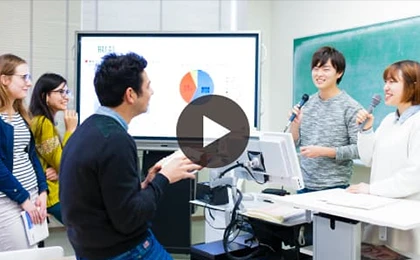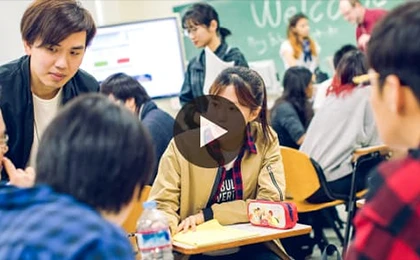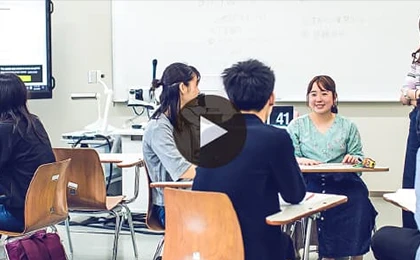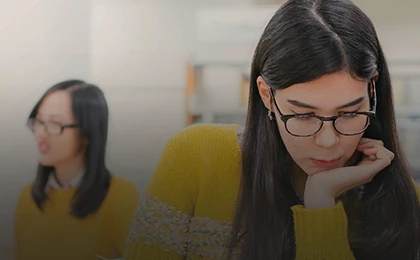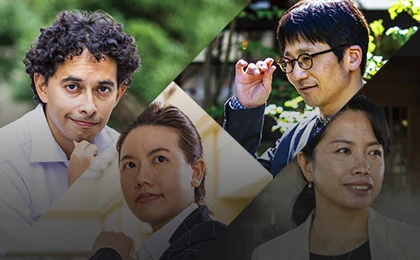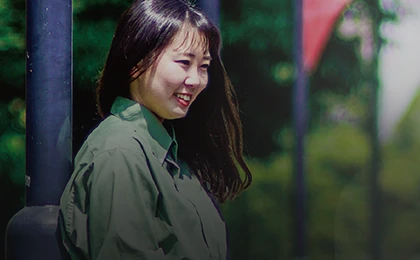

COLLEGE OF ASIA PACIFIC STUDIES
Lead the world from Asia
The issues facing the world today are complex and intertwined. It is not possible to find solutions to the complex problems occurring in the real world only by learning within the framework of one academic discipline. The College of Asia Pacific Studies (APS) offers interdisciplinary studies in political science, sociology, and economics with a focus on the Asia Pacific region, which will lead the world in the future. From the three areas of study of "International Relations", "Culture, Society, and Media", and "Global Economy", students at APS develop a flexible way of thinking, multifaceted perspective and develop the ability to organically link studies from different fields.
Courses at APS focus on skills that allow students to think independently about how to solve problems through research, discussion and presentations. Our faculty members, who are actively involved in top-level academic societies in their respective fields, conduct highly interdisciplinary and specialized classes in order to improve the qualities of students. Through this type of approach, students acquire the expertise needed to resolve the various issues in the Asia Pacific region as well as the skills needed in the real world such as critical thinking and cooperation with others. From the 2023 academic year, APS offers a new learning style of concentration, diffusion, circulation, and practice to teach practical learning that has real value in the international community and develop people who can change the world.
Message from the Dean of College
College of Asia Pacific Studies
Professor Yoichiro SATO (Japan)
The College of Asia Pacific Studies will aim for a new heights in 2023. We will retain our original academic goals that were set upon the opening of this university, including internationalization nurtured on campus as well as the capacity to empathize and the appreciation of diversity, which can be achieved through a wide array of studies. On top of this, we will add a new curriculum and off-campus learning opportunities through which students can systematically learn the three academic areas central to sociology and develop into highly professional individuals who will flourish globally.
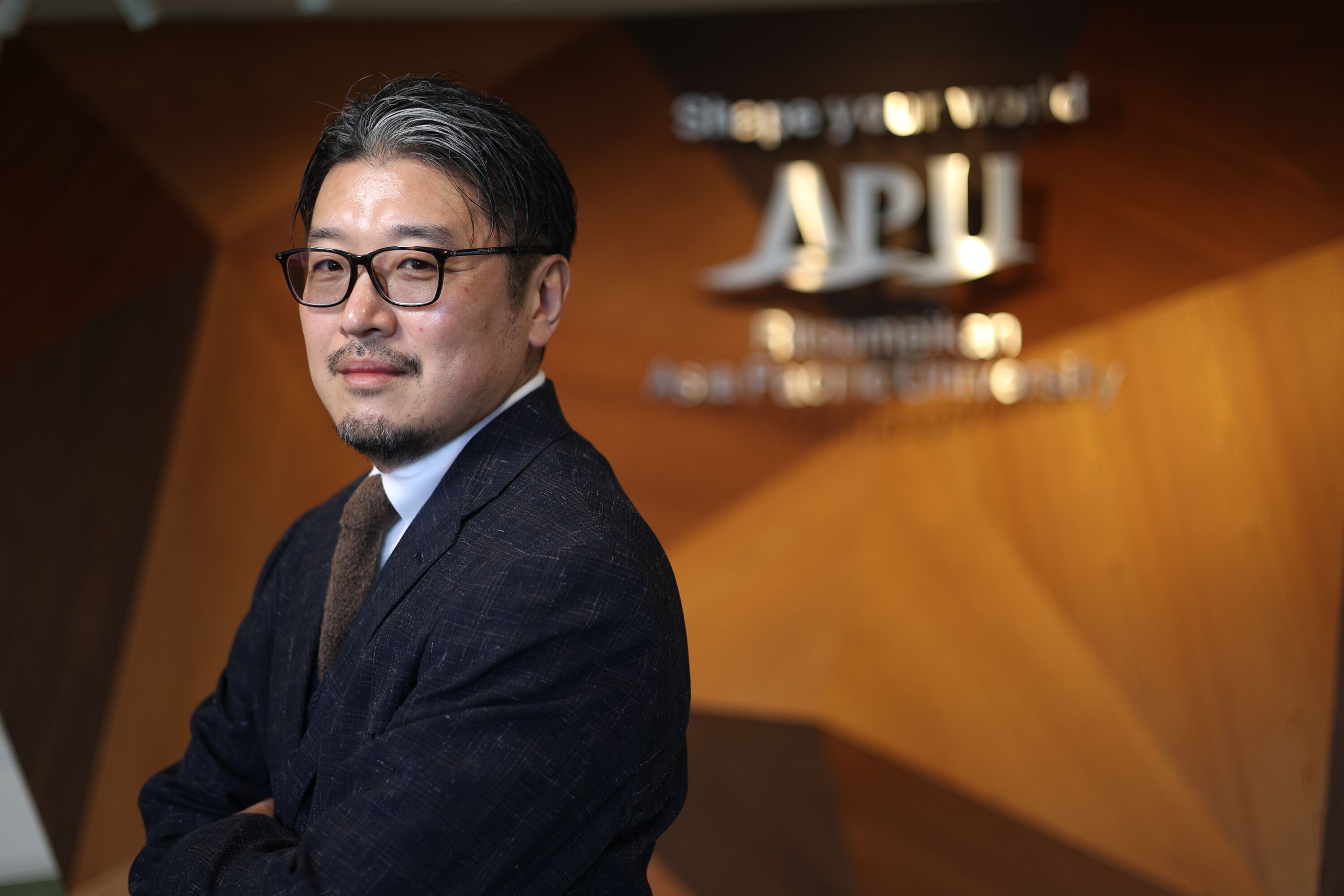
Choose the area of study that is best for you from among the three offered!
-
 International Relations
International RelationsAPS explores how to resolve international issues from legal, political and economic perspectives.
There are currently 193 member states of the United Nations in the world. While some countries are growing economically with domestic social and political stability, others are suffering from civil wars, wars with neighboring countries, social unrest, and poverty. The Indo-Pacific region, the world's largest economic zone, is also expanding its economic ties through free trade and foreign investment, but at the same time, it also faces transnational problems such as territorial and border disputes among neighboring countries, competition to expand military power, stagnation and retreat in democratic politics, human rights violations and ethnic conflicts, environmental destruction, and terrorism. In the field of International Relations, we analyze these problems and search for solutions.
-
 Culture, Society, and Media
Culture, Society, and MediaA diverse view of the Asia-Pacific region from cultural, social, and media perspectives.
To humans, ‘others’ are both the source of joy and inspiration in life and the source of unhappiness and constraints. We live in a society in which we coexist with these ‘others.’ Nation-states established in modern times have made rational mechanisms of coexistence possible. However, globalization through Capitalism and advances in media technology led us to seek new ways of coexisting amidst diversity in the modern age. The Culture, Society and Media course explores the potential for inclusivity from micro and macro perspectives. Students study theory and concepts and conduct surveys of society and culture to find solutions to social problems and propose new ideas.
-
 Global Economy
Global EconomyExploring the globalized Asia-Pacific region from an economic perspective.
Where do the things we use in our daily lives come from? Many things, such as clothing, food, and books, come from other countries, where materials are made, processed, and crafted into products. Extreme weather and changes in conditions in other countries can have a big impact on the Japanese economy, for example through domestic supply shortages and soaring prices. What can we do to ensure the happiness of people in all regions and generations in global society? In this field, we explore the globalized Asia-Pacific region from an economics perspective.
PICK UP
In the ‘migration model’ of learning, we provide learning in the broader world outside the campus limits.
In the APS ‘migration model’ of learning, the world is your campus. We have student exchange agreements with prestigious partner universities that have a high affinity with APS, as a College that excels in areas of study like International Relations and Asia studies. We have expanded short-term intensive courses, field studies, and mutual access online to and certification for courses during the regular semester with these universities, offering long-term study abroad programs as well as learning in the broader world outside the campus limits. The ‘migration’ courses that strongly emphasize international compatibility of the specialized areas of study include opportunities to intern at international think tanks, embassies, and international organizations.
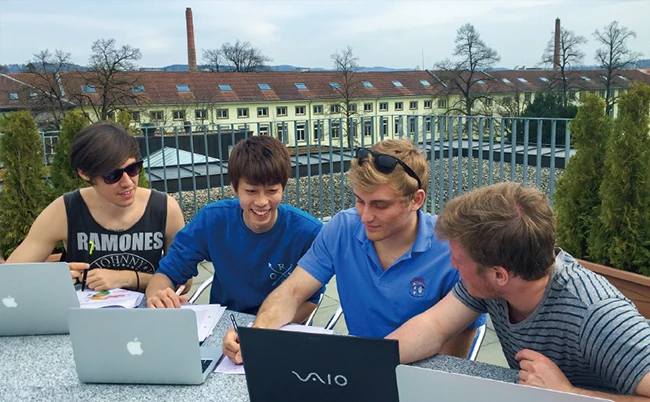
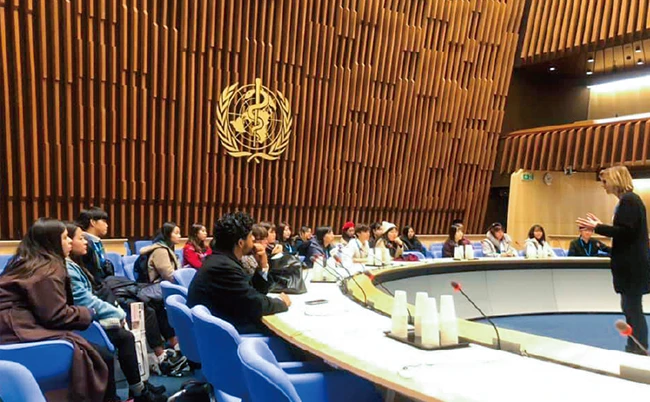
Double Degree Program
St. Edward's University, United States
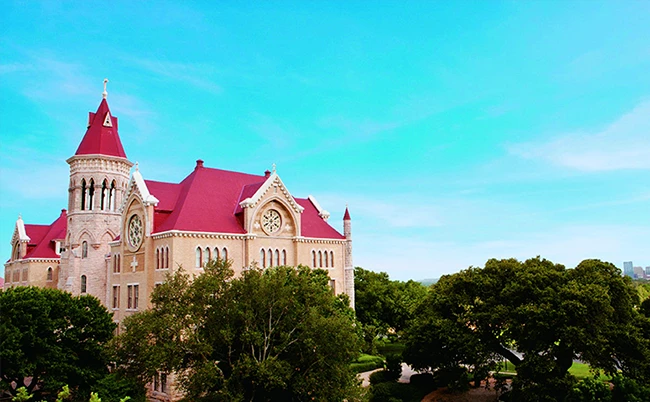
Get two degrees in four years; one from APU and the other from an overseas university
The aim of the Double Degree Program is to enable students from APU and St. Edward’s University (SEU) to take courses for two years at each university (four years in total) to receive a degree from each university.
Students must not only have good command of English but must aslo have a strong interest in the field they wish to pursue and have a clear future objectives in addition to a concrete study plan to be able to complete the Double Degree Program. They must also be willing to listen to others, think by themselves and be able to convey their opinions.
